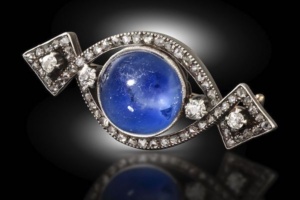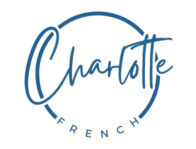Winner of Port Writer’s Literary Competition 2018
Mum sits on the hard verandah floor with her rounded back to me, feet on the concrete steps down to the bronzed lawn, shoulders slumped and arms slack by her side—weighed down and emptied out. I wonder if she’s cried yet.
It was a modest funeral without tears. A group of gentlemen from the nursing home came and two previous neighbours, Betty from next door and Mrs Karlson in the downstairs apartment, both with their walkers. Mum had managed to organise all the finer details over the phone; an oak coffin, a simple arrangement of white lilies, Chopin, and a sepia portrait of Grandma at Mum’s age, not a great likeness but the same deep set eyes, the same reticent smile. Mum is prettier, I must tell her that. Her brothers arrived late after insisting on parking blocks away. Uncle John spoke for a bit, half-truths bounced between stonewalls while we sat on wooden pews with straight backs; he and uncle Paul don’t share mum’s memories. After the service we had a small reception in the function room adjacent to the church. My uncles didn’t stay long.
We left for Grandma’s summer cabin as soon as we’d said goodbye to Betty and Mrs Karlson. The drive here was bittersweet: stony landscape strewn with tousled juniper trees, wildflowers and brittle grass along winding roads, the old bridges, the narrow trail up to the gate, the unrestrained garden with its huge round boulder—that I used to scramble up and scrape my knees on—covered in wilful nasturtiums, the smell of tobacco, butterscotch candy, and Grandma’s hairspray as we opened the door, the knowing what this place is to us, that this may be our last time.
We’ve both taken time off work. Our plan was to stay a week to sort through Grandma’s belongings here at the cottage and her unit in town, make both places presentable for the real estate agent. Thanks to my uncles we don’t have to worry about her apartment. Thanks to my uncles we don’t have to carry anything heavy. We’ve come to pack up her life, but more than that we’ve come to sit on her glass verandah, wilted dandelion wreaths in our hair, tipsy on Chardonnay. Except I’ve given up drinking for now. Mum doesn’t know yet. When the time is right. In any case there is no verandah setting, no table not a single chair. John and Paul have already been. Picked what they wanted this morning while we were still on our way south.
The parlor, as Grandma called it, beams with sunlight on the faded wallpaper. All art is gone. Instead of the landscapes in embellished frames, now vacant squares exhibit Victorian damask in its original moss green. John and Paul have also taken the old iron bed, the lounge, bookshelf and writing desk. They’ve taken the traditional Swedish pine kitchen-sofa with its long solid seat and deep trunk underneath where I always slept. You could pull the bottom out and make it wider. I claimed it as my own; filled it with Grandma’s cushions, my toys, and my books. On rainy days Mum would wedge herself in there with me. We’d colour in and she’d read me stories. I had assumed it would be in my kitchen one day. We came down in my Land-Cruiser with a trailer but there’ll be nothing to bring back. A few random pots are left in the pantry that’s all. Even the mustard-yellow dinner set is gone. Grandma’s cottage is naked and John and Paul are now on the road heading north with overloaded trailers behind their four-wheel drives. John will be listening to Classic Radio visualising himself conducting, not a care in the world. I try to imagine Paul with some remorse following behind his brother’s car but can’t quite picture it.
Mum has one brooch at home that she wants me to have—a sapphire surrounded by diamonds, a vintage Faberge. Grandma handed it to her a few years ago in a moment of candour. It was from Mum’s father. His only gift.

I leave Mum to ponder. I start in the kitchen, get on my hands and knees scrubbing cupboards. Childhood memories keep nudging me, make time pass, make me forget the nausea. There’s me picking summer bloom bouquets with Mum, me sitting on the rocks squinting at Dad fishing, rod sturdy in his hands, casting and reeling while I ask a hundred questions, Mum and I swimming in glittering water, her gentle hand supporting me as I take my first breast-strokes without the pink floatie, me climbing the spindly branches of the birch trees—I often ended up too high, too scared and it would take dad hours to persuade me to jump into his arms—, Mum on Dad’s lap sharing the garden bench laughing with her arms around him, Dad kissing her cheek.
I used to love and hate the long drive south to ‘Grandma’s Island’ in the archipelago. We’d start off with singing and telling jokes but after an hour I’d tire, ask ‘Are we there yet?’ until even that was an effort. Mum always woke me up as soon as we could spot the blue line of the Baltic Sea. I’d count the narrow bridges we had to cross to get to the furthest island. When I’d used up all fingers on one hand I knew it was only a turn right into the grassy lane with bouncy potholes and there was my grandmother, petite in high waste slacks and blouse tucked in, hair tousled in a scarf and a cigarette holder coquettish between two fingers while she held the gate open for us. As a little girl I always thought the world of my her. She used to let me play horsey with her for the longest time. She’d be on all fours on the grass and I’d wobble on her back and smack her bum telling her to go faster. She smoked a lot and drank her coffee on a saucer with a sugar square between her lips without slurping. Her hair was feather-light, black coloured strands arranged with hairpins at the back to cover bald patches. She adored Dad, favoured him before Mum. He told me that—not Mum. Grandma liked men. That was true enough. Dad said, at times Margaret was a bitch.
In the car down I asked Mum about her mother. She asked me about Jonas, suggested I should hang on to him. She made me laugh. I showed her my ring and made her laugh. Mum was pleased, said she’ll take us out for dinner to celebrate. Once we’d settled into the driving hours ahead, Mum opened up with well worn tales: how Grandpa bought her a second hand bike and painted it red, how on a Saturday he’d give her a copper coin and they’d walk to the harbour to the man with the ice-cream cart, how in the evenings she’d often have to drag him out of the local pub and help him home. The neighbours most likely shook their heads behind their curtains, watching the slouching drunk, arm resting on his daughter’s small shoulder both of them staggering through the gate. She’s often told me how Grandpa drank too much but never spoke a harsh word, how thrilled he was when I came along years later. He was skin and bone then. She’d sit me on his lap and he would tear up. I don’t remember him at all. His liver gave up before I took my first steps.
Then Mum moved on to things I never knew. Grandpa married Margret at the registry office when she was three months pregnant with John. Paul came only two years later. Margaret cooked and cleaned and mothered her boys and served her husband dinners—did her best. ‘Behaved’ Mum said hooking two fingers. Once Paul was in first grade, being a boilermaker’s wife was not enough anymore.
Grandma always loved dancing and admitted to Mum that’s how she met Mr J.B Hollander. As mum told me the story, I imagined Grandma as a young woman at the local dance hall in a swing dress and a little jacket, hair thick and naturally black. I imagined her laughing in the arms of a man with moustache, her curls bopping, the two them foxtrotting around the floor, the orchestra playing Fly Me To The Moon. I imagined J.B Hollander in a three-piece suit, pomade hair, confident and charming. He must have swept young Margret off her feet, made her forget her family, her husband.
Then she fell pregnant. The love affair crumbled when she couldn’t hide the growing belly any longer. They never had a future; J.B. had nothing to offer. After all, Mrs Hollander was the one with the money. Grandma had to pretend Grandpa was the father and get on with her life. After Mum was born, while Grandpa was at work, J.B visited once and brought a gift. Only once did he see his baby daughter and Margaret hid the Faberge from her husband,
Mum has no recollection of ever sitting on her mother’s lap or being hugged. Her earliest memory is of Grandma’s firm voice. Mum grew up with a dread having done something wrong. At the age of seven she ran the errands, carried wood up the stairs every afternoon, brought the milk home, and took the potties out in the morning eager to please while her older brothers had no obligations. The age gap between Mum and my uncles never bothered her. What did bother her as she grew into an adult herself was the chasm between her and Grandma.
When Mum turned fifty, Grandma surprised her with the brooch and a confession about the past. When Mum turned fifty she finally made sense of her and her mother’s relationship. She had been an obstacle to Margaret’s reclaimed freedom. Her features, her very molecules, were a reminder of someone Margaret couldn’t have, someone she couldn’t be. Mum was a mnemonic in the flesh to her mother. It was Grandpa that treasured mum. Together they lived in Grandma’s shadow. Mum never stopped trying to win her mother’s approval. A different kind of validation came when she married Dad. I don’t know why I never noticed this growing up. The nasty words, the cold shoulder, the favouritism. Sometimes Mum was short to her mum, and I would side with my grandmother thinking Mum was mean. A stone to carry now. But Mum doesn’t hold grudges against me. Never has. I can see she will hold a grudge against her brothers.
After the service we moved into the modest function room and Mum took on the hostess roll acknowledging, listening, nodding her head. Grandma’s best friends, Betty and Mrs Karlson, and the nursing-home-gentlemen whom had known her less than six months, they all had a story to share about Margaret. Mum poured her brothers coffee, brought them cakes and asked them for the key to the apartment. Paul shrugged looking sideways at his brother. John sat back and crossed his arms over his chest, shirt tight over his protruding stomach. He stared straight ahead for a moment before he spoke without looking at Mum. It had been sold. It had been signed over to them; yes, their mother’s wish; no, Mum’s name was not on the title deed. It had all been done stealth, last year, while Mum was in the middle of divorcing Dad, her hands full. Grandma’s exquisite flat with high ornate ceilings and parquetry floor worth a mint and everything in it—antiques, silverware and her jewellery—gone.
Mum was stunned after John owned up. Was quiet while this new concept took root. Then she said, ’Nothing for Penny’? Her hand gripped mine and I held tight. John smirked and Paul infused by his older brother’s arrogance stirred his sugar beaming at us as if they had something to be proud about. Mum’s arm started shaking and it spread through her body. She whispered forcefully ‘B a s t a r d s’! Then she hauled the coffee jug at them and shoved the cake plates in their laps. The scalding liquid must have burnt because they shot up, tumbled out of their chairs and John fell over on his back. All small talk stopped as the elderly seated around the tables gawped with excited embarrassment at my uncles’ flushed faces and white shirts stained with coffee blotches. Paul helped John back on his feet while Mum put her trembling hands through her short hair. Then she straightened her back and told them loud and clear to get out. We stood in the doorway and watched them drive away with their overstuffed trailers. Mum held herself for a whole hour after that and apologised to the reverend who was speechless. I was proud of her.
I call out the kitchen is done. There’s no response. I see mum through the smudged window still sitting on the verandah staring straight ahead with a box of Kleenex on her lap surrounded by scrunched up tissues. I dig out the Chardonnay from our esky, mineral water for me, and walk out to her. In spite of the sun still high in the sky, still warm, the breeze gives me goose-bumps.
Mum looks up at me glass-eyed with swollen eyelids and smudges of black and purple. I pour her a glass and sit. I close my eyes and listen to the bumblebees eager in the rose bushes next to us and the soft rustle through the leaves of my birch trees. The faint smell of dry earth and of brine from the sea overpowered by lilac bushes, order me to give Jonas a ring later. He’d love the fishing, and I want my daughter to climb the nasturtium boulder and learn to swim here. Renewed energy surges through me. We can buy my uncles out. I open my eyes and pick Mum’s free hand out of her lap. I place it on my flat abdomen Jonas and I now call our treasure trunk. Our eyes lock.
This is not a true story. This is however loosely based on truth. I wish my mum could have read this. She would have understood and appreciated. Sadly she passed away a few years before I started my writing journey.

